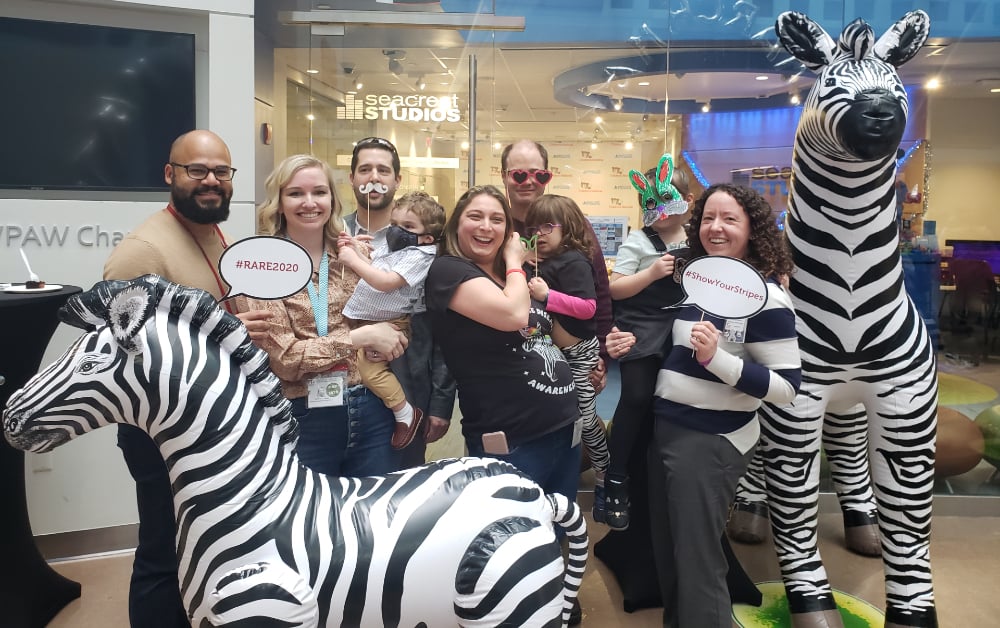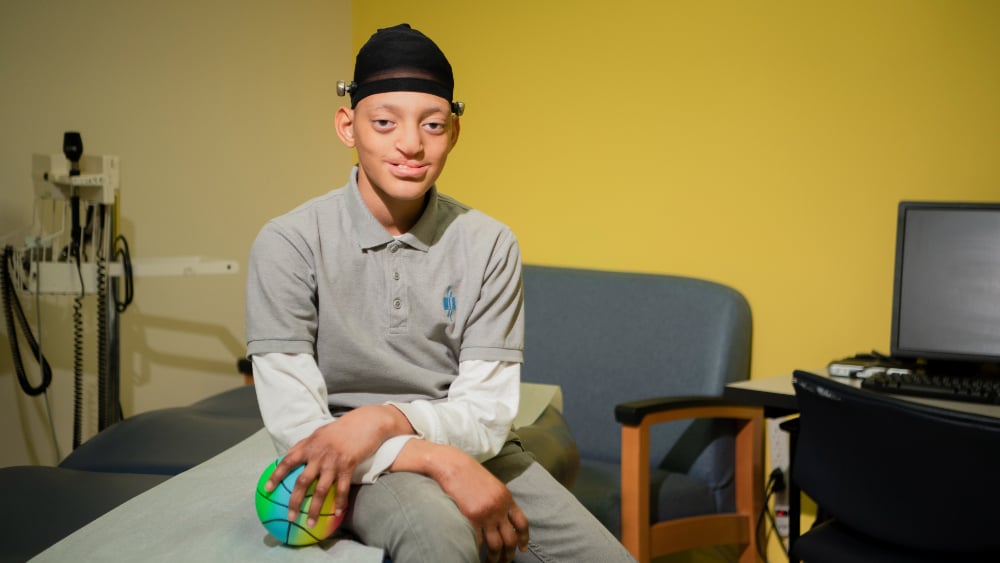Condition
Pediatric Treacher Collins Syndrome
What Is Treacher Collins Syndrome?
Treacher Collins syndrome is a birth defect that happens when bones in the face and jaw do not form properly during fetal development. This condition affects the shape of the face, facial features and ears.
Because almost the entire face is affected by Treacher Collins syndrome, the disorder can cause problems with:
- Feeding
- Breathing
- Hearing
- Vision
What Causes Treacher Collins Syndrome?
Gene mutations cause Treacher Collins syndrome, which means that children either inherit the syndrome from their parents or the mutation happens during fetal development.
Symptoms of Treacher Collins Syndrome
The signs and symptoms of Treacher Collins syndrome may differ greatly, from barely noticeable to severe. Common symptoms in babies and children with this condition include:
- Very small, flat or missing cheekbones
- Very small lower jaw and receding chin
- Eyes that slant downward
- Notched lower eyelids, sometimes missing eyelashes
- Low-set, misshaped, or missing ears
- Hearing loss because of defects in the middle ear or ear canal
- Difficulty breathing because of blockage in the nasal airway, including sleep apnea
- Cleft palate (opening in the roof of the mouth)
- Difficulty feeding and swallowing because of cleft palate and jaw problems
How Is Treacher Collins Syndrome Diagnosed?
Sometimes, physicians can detect Treacher Collins syndrome before the baby is born during a routine prenatal ultrasound. Most often, your baby’s pediatrician diagnoses Treacher Collins syndrome by physically examining your baby after birth. Additional tests to make an accurate diagnosis include:
- X-rays of the head and face to check for abnormal facial development
- Diagnostic imaging, including CT scans, to examine the head, face, jaw, middle ear and ear canal
Treatments for Treacher Collins Syndrome
Treatment options for Treacher Collins syndrome focus on relieving or correcting the various symptoms. Timing for different types of surgery usually occurs in stages throughout childhood, taking into account your child’s condition and rate of growth.
At Children's National, our Craniofacial Program has expertise in the following treatment options:
- Surgery to repair cleft palate and remove any airway obstructions
- Surgery to reshape the cheekbones, reconstruct the ears, and correct jaw problems
- Hearing aids or cochlear implants (surgically implanted hearing device) to improve hearing
- Orthodontic surgery to correct dental problems
- Speech therapy to help with speech and language development
Departments that Treat Treacher Collins Syndrome

Rare Disease Institute - Genetics and Metabolism
Children's National Rare Disease Institute (CNRDI) is a first-of-its-kind center focused exclusively on advancing the care and treatment of children and adults with rare genetic diseases.

Cleft and Craniofacial Program
The Cleft and Craniofacial Program at Children's National brings together experts from 10 pediatric disciplines to provide complete care for children with craniofacial disorders. Our multidisciplinary pediatric team helps more than 400 children every year.



